Got a maintenance plan?
We may have a maintenance plan for our car (regular oil change and check up), our heating and air system (seasonal check up), or our home, (time for a new roof?) But do you have a maintenance plan for you?
Recently, I seem to be obsessed with weeds–those in my flower bed and those in my life.
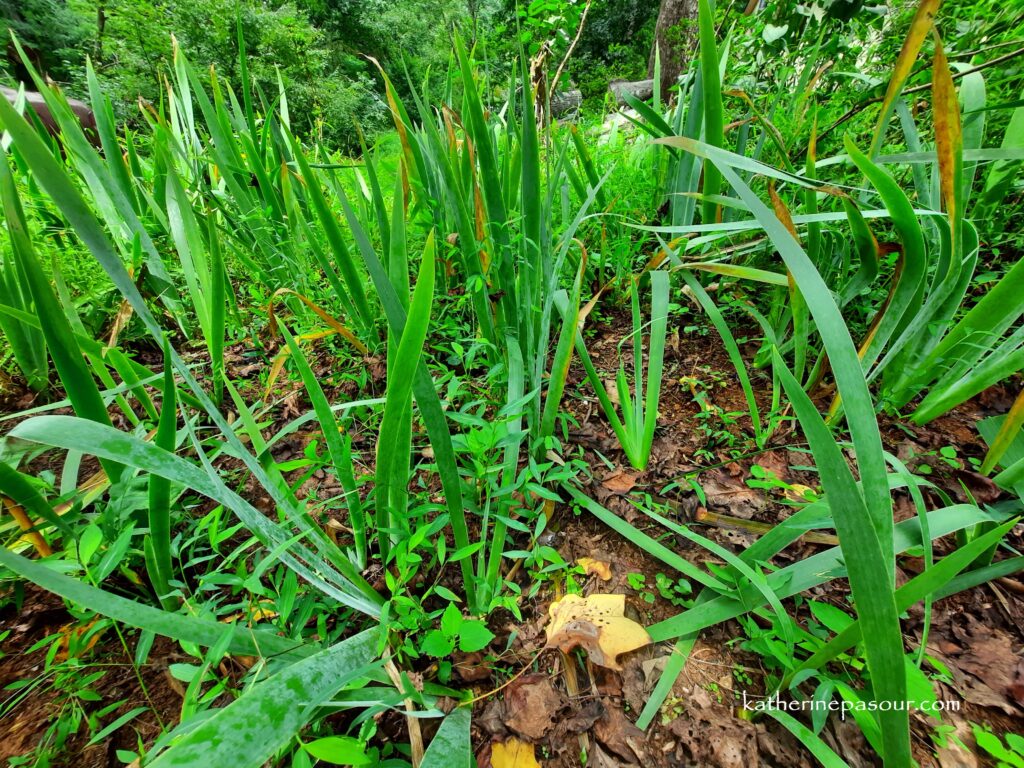
Since it is easier to focus on the weeds in my flowers than in my life, I spent numerous hours this week-end in an endeavor to provide some tender loving care (maintenance) to one of my Iris beds. This one needed attention in several areas–weeding, pruning, thinning, and fertilizing. Azaleas and rhododendrons also received a much needed dose of fertilizer.
Of course, as my hands were working, my brain kept reminding me that I need regular maintenance, too. Especially, if I am going to bloom where God sends me.
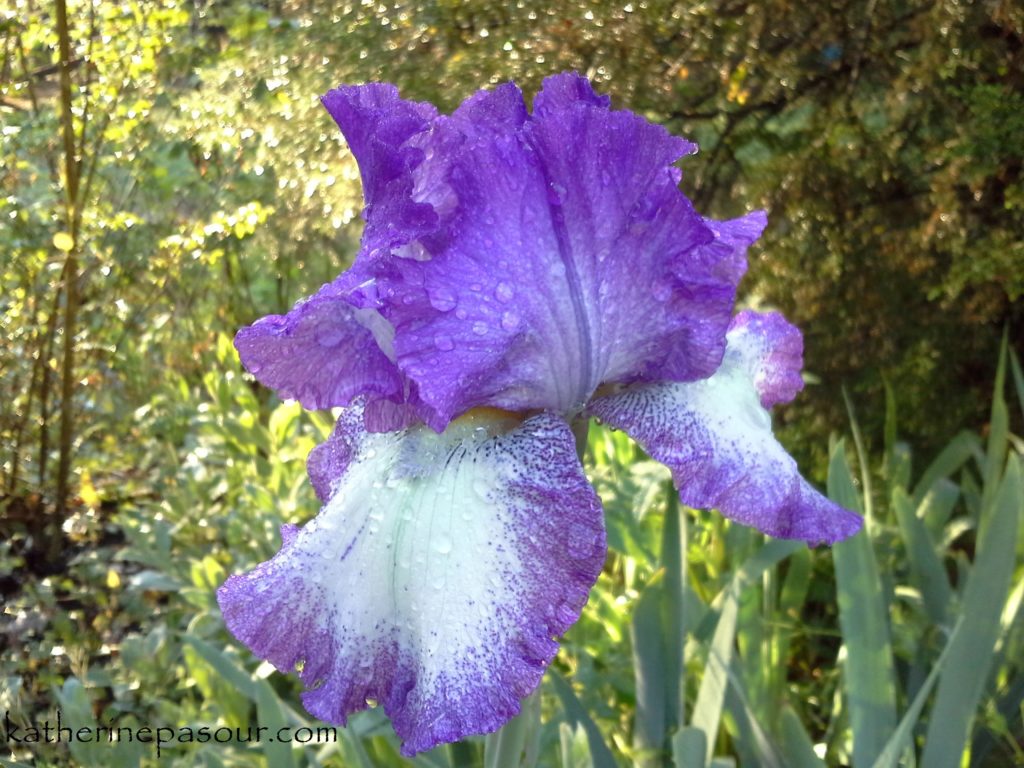
Of course, this is not the season for Irises to be blooming at my home, BUT if I don’t do the proper maintenance in the fall to care for these amazing flowers, they will not share their blossoms next spring.
Pruning and weeding
Jesus tells us about the importance of pruning:
I am the true vine, and my Father is the gardener. He cuts off every branch in me that bears no fruit, while every branch that does bear fruit he prunes so that it will be even more fruitful.” John 15:1-2
John 15:1-2
We’ve all experienced some of that divine pruning, haven’t we? And benefited from it? I know that I have. It’s painful, but our Lord nurtures our new growth after his pruning and we blossom in service to Him, just as my flowers benefit from pruning and gift me with beautiful blossoms the following year.
But it doesn’t happen without effort. In nature, pruning and weeding are labor intensive and time consuming work. We might get blisters, sun burn, bug bites, and lots of muscle aches and pains from our efforts.
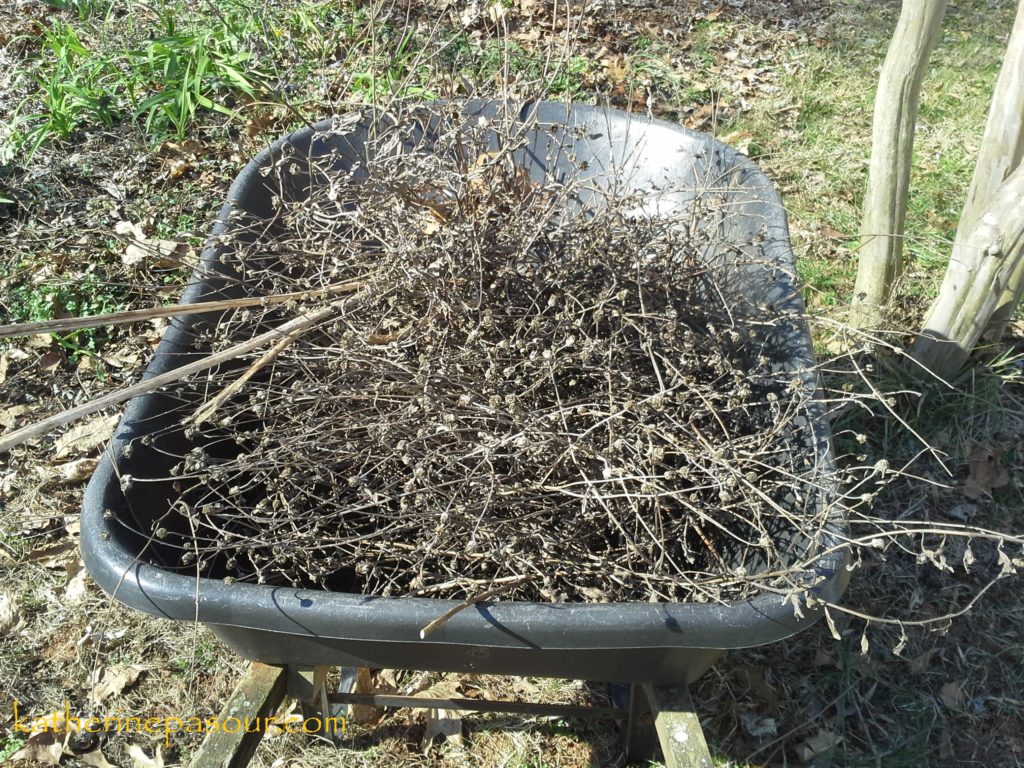
Pruning off the old, dead growth is hard work. But the results can be glorious beauty as God gifts us with the fruit of our labor. Thinning of plants means developing new flower beds or discarding the removed plants (which makes me sad). Fertilizing provides additional nutrients, something the plant is lacking in its current environment. No matter how we look at it, maintaining a yard and flowers is a LOT of work.
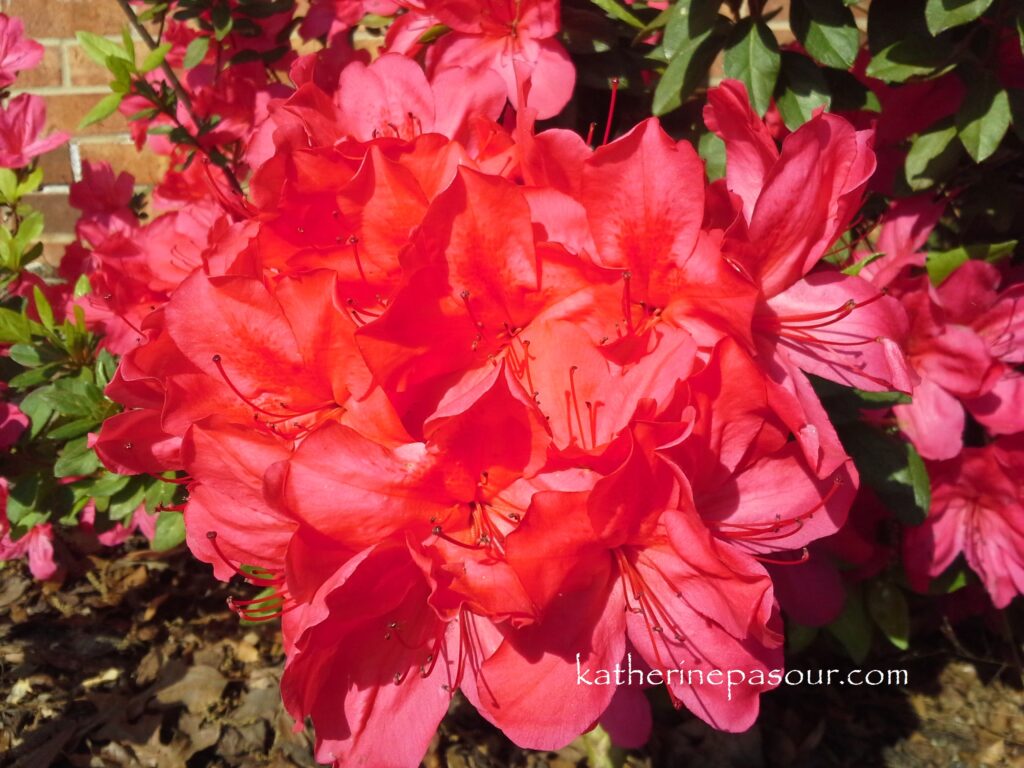
But what about our own pruning, weeding, thinning, and fertilizing? We learn a lesson from Jesus about pruning in the Gospel of John, Chapter 15. The author of Luke shares a Parable of Jesus that provides a message about bearing fruit:
A man had a fig tree growing in his vineyard, and he went to look for fruit on it but did not find any. So he said to the man who took care of the vineyard, ‘For three years now I’ve been coming to look for fruit on this fig tree and haven’t found any. Cut it down! Why should it use up soil?'”
‘Sir,’ the man replied, ‘leave it alone for one more year, and I’ll dig around it. If it bears fruit next year, fine! If not, then cut it down.'”
Luke 13:6-9
When I work in my yard, performing the appropriate tasks for maintenance of flowers, I expect results. I don’t always get the responses I hope for, but I always anticipate beautiful flowers (the fruits of my labor). This parable Jesus shared reminds me that God expects results from His care for me. Sometimes I suspect that God is saddened by my failure to respond to His ongoing love and maintenance of me.
How does God provide daily maintenance for us?
- He fertilizes us daily with the Holy Spirit.
- He nourishes us with the love of Jesus each day.
- He pulls out the weeds of sin and gifts us with joy.
- He prunes away the unwanted parts and restores us with His faithfulness and love.
How can we respond to God’s outpouring of love? (His maintenance plan?)
And do not grieve the Holy Spirit of God, with whom you were sealed for the day of redemption. Get rid of all bitterness, rage and anger, brawling and slander, along with every form of malice. Be kind and compassionate to one another, forgiving each other, just as in Christ God forgave you. Ephesians 4:30-32
We can let our actions show that we have grown and blossomed in response to God’s nurturing. At this crucial time in our history–Covid-19, fear and anxiety about employment and our economy, and national and world strife–we need a maintenance plan for ourselves that reflects our response to God’s unfailing love for us. By accepting God’s gift of love, we are empowered to love one another with that same caring and forgiving spirit.
Jesus told us how to do this:
A new command I give you: Love one another. As I have loved you, so you must love one another. By this all will know that you are my disciples, if you love one another.”
John 13:34-35
So how can our maintenance plan remove the weeds (sins), readily accept pruning (snipping off those parts of us that do not reflect God’s presence), thinning the chaos (knowing whose voice to follow), and fertilizing our gifts so that we may achieve even greater service to our Lord?
We know the answer, don’t we?
- Spend time with God–in prayer and meditation.
- Be in His Word–read scripture to seek His wisdom.
- Prayerfully ask God to pull those weeds and give us that pruning to set us on His pathway.
- Allow the Holy Spirit to water us, cleanse us, and fertilize us with wisdom to make decisions that follow God’s will.
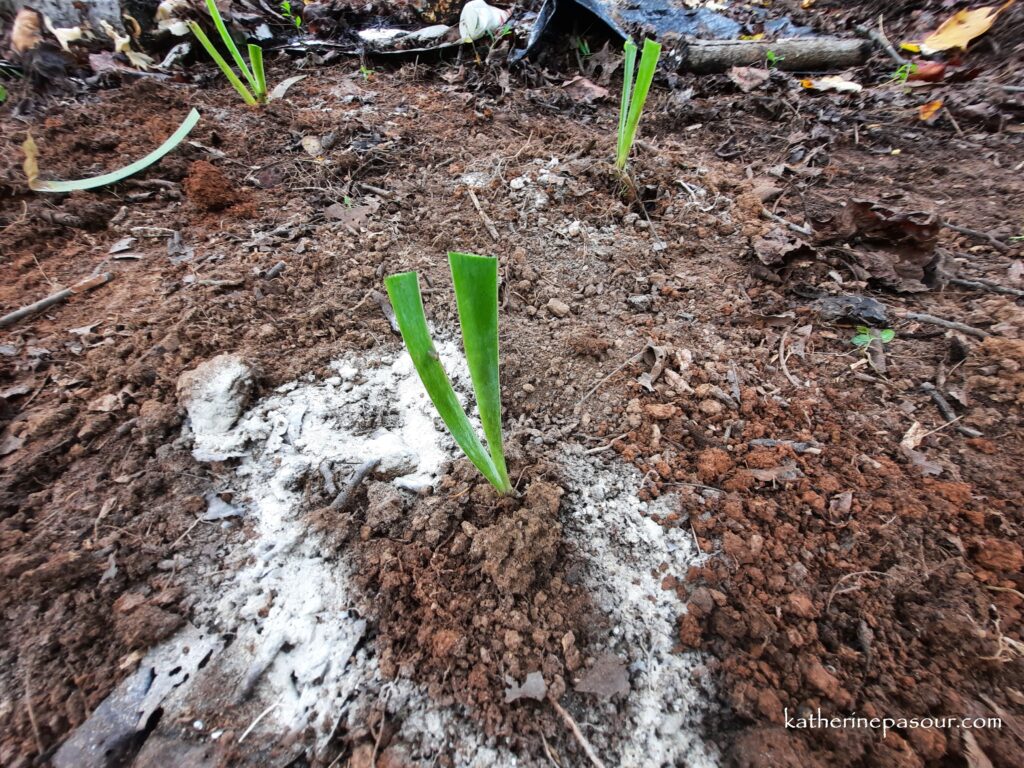
At the end of my long day of yard work I have hope that this new little plant (and others), products of God’s creation and nurtured by me, will thrive through the winter and produce a beautiful blossom next Spring.
What kind of fruit is my Lord nurturing me for? What about you? Where is God planting you that you will grow and blossom in His service?
Being pruned is not fun, but it is needful sometimes. When we are pruned, it makes us feel lighter, like when I got my hair trimmed this weekend, lighter and refreshed. Thanks for the reminder and the beautiful flowers.
I like your analogy of feeling lighter after pruning. It reminds me that God often relieves a burden when He prunes us. So it makes sense that we would feel lighter. I definitely like the idea of being refreshed! Thanks for visiting my blog, Linda. Wishing you a blessed week.
John 15 is one of my favorites! and your analogy is so true. We need to tend the garden of our soul in the same way we tend other things we deem important. Great post.
I’m with you, Jeanne. I love John 15 as well. It’s so hopeful and encouraging and we know that Jesus keeps His promises! “Tend to the garden of our soul.” Well said!
Love the analogy of sins as weeds in our life. The process of weeding our gardens and weeding sin from our lives are similar. Neither are fun but both are necessary if we are to bloom for Jesus as he intended.
You are right, Candyce. Being down on my knees pulling those weeds is tough work. And they (the weeds) keep coming back! Kind of like sin keeps coming back, too. Another reminder of how diligent we must be to keep sin from taking over.
Indeed my friend. Undergoing “maintenance of our souls” is sometimes such a difficult, but needed, process. Thank you for reminding me of the importance of inviting the Vinedresser into my life so that I might be ready to bloom when the time arrives. God’s blessings ma’am.
We are blessed, my friend, that the Vinedresser always answers our call. And if we’re in rough shape from our day of pulling weeds or wrestling cows, our Lord dusts us off, gives us some “living water,” and puts us back on that path to Him.
Katherine, I’m thankful the Master Gardener knows just how much to prune and fertilize. An untended garden loses its beauty and fruitfulness. Wonderful analogy.
I agree with your analogy, Debbie. I know how terrible my garden and yard look when I fail to weed, prune, water, and fertilize. Aren’t we blessed to have the Master gardener as our Lord? He knows just what we need and when.